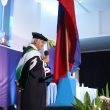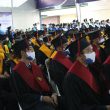Brian L. Belen, Ph.D.
Editor-in-Chief
The late political theorist Bernard Crick once described politics as “the conciliation of diverse interests in society.” In a democratic setting, it is easy to see why: citizens are afforded many opportunities to rally around the causes in which they believe, and ultimately advocate for matters that are in their interest. Notably, the objective of the exercise is not to achieve consensus about the outcome but rather an abiding sense that the outcome was achieved with reasonable fairness. Process, therefore, is at the heart of all politics.
Elections represent undoubtedly the most important of all political processes. They allow us to determine unambiguously who should receive a mandate to govern, where every citizen stands on equal footing (“one person, one vote”). Yet more than just a mechanism that allows us to choose our leaders, they also serve as a snapshot of society’s values at a given point in time.
Much has already been written about how the Philippines’ general elections in May of 2022 will be pivotal. And why not? The country is emerging from a pandemic, the public sphere is rife with disinformation, and the Filipino people have arguably never been more divided. At a minimum, what is at stake is the question of who will lead us through these issues over the next six years. More fundamentally, the elections will reveal who we are as a people right now, and what it is that we value going into the next six years and perhaps beyond.
As an academic community, what FAITH Colleges values is clear: the open and critical exchange of perspectives, rooted in and in service of the true and the factual. Elections are necessarily partisan affairs, and as such the members of the FAITH, academic community are free to advocate (or not) for (or against) the candidates of their choosing. But they should do so in the spirit of enlightening one another and bringing each closer to the truth, and always in a manner accommodating of differences in opinion.





